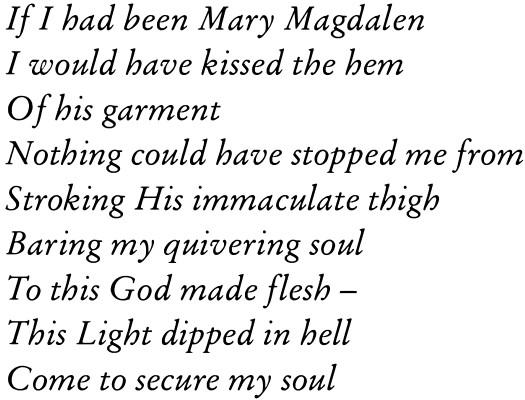Let's Spend the Night Together: Backstage Secrets of Rock Muses and Supergroupies (2 page)
Read Let's Spend the Night Together: Backstage Secrets of Rock Muses and Supergroupies Online
Authors: Pamela Des Barres

Kisses to the best agent a chick could ask for, Peter McGuigan. I didn't know chivalrous agents like Peter existed. And thanks to the folks at Chicago Review Press, especially my editor, Yuval Taylor-definitely a rebel in his field. Copious hugs to Patti Johnsen, who happily and expertly assisted me as my deadline drew near. Much appreciation goes to my oldest friend, Iva Turner, for focusing her considerable intelligence on this project, editing each chapter as I completed it. I needed an objective viewpoint, and that's exactly what she gave me. To all my gal pals who haven't seen much of me the past two years-we'll have dinner soon, I promise. Thanks to MDB for always offering excellent advice and being the best ex-husband ever. To my boy, Nick, for believing in his hippie-hearted mom. Endless adoration to my darling teacher, Light, for always pointing her laser beam directly at the truth. Thanks to Victor Hayden for just being Victor. To Bob Dylan, a source of eternal inspiration. To all the musicians who have rocked my universe and continue to do so. And to my boyfriend, Mike Stinson, for looking at me the way he does.

 s a young girl, I was drawn to Jesus. Even though my parents weren't religious and rarely went to church, my sweet, perceptive mother made sure the Good Book was handy, and for my twelfth birthday, my dear Aunt Edna got me my first white leather-bound, gilt-edged Bible, which I still have. I voraciously studied the New Testament, especially the words printed in red ink. The words HE said.
s a young girl, I was drawn to Jesus. Even though my parents weren't religious and rarely went to church, my sweet, perceptive mother made sure the Good Book was handy, and for my twelfth birthday, my dear Aunt Edna got me my first white leather-bound, gilt-edged Bible, which I still have. I voraciously studied the New Testament, especially the words printed in red ink. The words HE said.
It wasn't long before I hung photos of Elvis next to the huge color portrait of a glittery Jesus that my dad brought home from Mexico. The way I felt about these icons was strangely similar, with one blasphemous exception: the King made me feel giddy and horny, while the King of Kings made me feel guilty about it. When I was about thirteen, and had just started rocking out, the pastor at the Methodist church I'd recently joined stated that dancing was a sin. I was dumbstruck and pored through the pages of my Bible, looking for the verse that made this horrid proclamation. I never found it. But aha! Psalm 150 says, "Praise Him with timbrel and dancing." Whew. I had no idea what "timbrel" was, but the passage gave me mighty relief.
Until I left the square churches behind and started calling Laurel Canyon "God's Golden Backyard," I assumed that the oft-mentioned Mary Magdalen was a fallen whore who Christ had redeemed. I thought it was cool that he risked his reputation by defending such a wicked girl, and many other so-called outcasts. If Jesus saved such a tragic wretch, there must be hope for me! But even before I discovered the truth, I suspected there was more to the story than a rehabilitated hooker. After all, Magdalen was the only recorded female disciple, and the first person he appeared to after the stone was rolled away.
As a teenager I read The Last Temptation of Christ by Nikos Kazantzakis, and a massive jumble of guilt was suddenly lifted. It gave me solace that, besides being holy, Jesus was also a man who struggled with life just like we all do. I went digging again. Where exactly in the Bible did it say that Magdalen was a whore? Guess what? It doesn't. Seventeen hundred years ago, an early church father (read: pious jackass) turned several shameless women in the Bible into one immoral sinner, and Jesus' beloved muse disappeared.
Long before The Da Vinci Code, before the books, documentaries, and discussions about what Magdalen's real relationship with Jesus might have been, I went on a quest to discover her true identity. I even took a vacation to Israel and wandered around Magdala, the seaside town where she was born. Shortly after my trip, I discovered an ancient Gnostic text, the Gospel according to Mary Magdalen, confirming my suspicions that she was indeed, the Lord's beloved. The disciple Peter asks, "Did He really speak privately with a woman and not openly to us? Are we to turn about and all listen to her? Did He prefer her to us?" Levi answers, "But if the Savior made her worthy, who are you indeed to reject her? Surely the Savior knows her very well. That is why He loved her more than us."
Since I had personally experienced the cosmic closeness that can evolve between a creative genius and an adoring fan, I began to see the Lord's closest companion as the first genuine groupie muse. In fact, the dedication in my book Rock Bottom reads, "To My Soul Sister, Mary Magdalen, the First Groupie." I was also inspired to write a poem:


From my newfound revelations and ongoing communication with the spirit of Magdalen, the idea to write a book about modern-day muses started swirling 'round my head.
I think Mary Magdalen was so cool, she was like the first groupie. I mean she was really into Jesus and following him around and I wish she would've left a diary. I mean all this stuff about Jesus, how wonderful he was, and how he's gonna save us. All I'd like to know is if he was a good lay. That interests me.
-Patti Smith, 1977
According to the Merriam-Webster dictionary, a muse is "a source of inspiration: a guiding spirit." I believe this describes the role of the groupie. A brilliant, creative man is often brought to the height of his genius by the muse. Throughout the ages, such women have helped revolutionize the arts. The ancient Greeks brought us the nine Muses through the prodigious loins of Zeus, and since then, attention and blessings from a muse are certain to stimulate any mere mortal's creative juices. "Happy he whomsoever the muses shall have loved," wrote Hesiod. "Sweet is the sound that flows from his mouth."
When Dante Alighieri first laid eyes on his beloved Beatrice, they were only nine years old, and even after her untimely death, his Paradiso acknowledges her profound, inescapable influence on his every word. Salvador Dali's tempestuous wife Gala was so roundly recognized as her husband's muse that when a Surrealist painter was on a roll, he was said to be "in love with Gala." And although Zelda's ecstatic miseries tortured F. Scott Fitzgerald, she was constant fodder for his art. "I married one of my heroines," he once said, and admitted to lifting large portions of Zelda's diaries for The Beautiful and Damned. Constanze Mozart, given little respect by historians, was so adored by her husband that he couldn't bear being away from her. "I kiss and squeeze you 1,095,060,437,082 times," he wrote in a letter. To his sister he wrote, "When Constanze heard the fugues, she absolutely fell in love with them . . . she scolded me roundly for not recording some of my compositions in this most artistic and beautiful of all musical forms, and gave me no peace until I wrote down a fugue for her."
After his death at thirty-six in 1791, Constanze spent the next fifty years making sure Mozart would never be forgotten. She obviously loved his music. The music, the music, always the music.
No matter how she is viewed by those who believe she busted up the Fab Four, John Lennon obviously believed that Yoko Ono was his muse. "With us it's a teacher-pupil relationship. That's what people didn't understand. She's the teacher and I'm the pupil. I'm the famous one. I'm supposed to know everything. But she taught me everything I fucking know." Yoko set her sights on John, even waited by his gate before finally drawing him in to one of her art shows. "As usual," he said, paraphrasing the cliche, "there is a great woman behind every idiot."
All creative souls need passionate encouragement from devoted admirers. There have always been dewy-eyed believers standing in the wings, eager to offer themselves up to the source of the enchantment. The phenomenon is nothing new. It's an ancient, enduring practice that will continue as long as artists feel the desire to create. I'm sure Beethoven's masterpieces aroused exquisite longing within audience members, and Mario Lanza's operatics inspired weak-kneed adoration. Sinatra's intrepid bobby-soxers waited by the stage door to get a glimpse of the swingin' crooner. But nothing is sexier than rock and roll. I was a preteen when Ed Sullivan chopped Elvis off at the waist so we couldn't see his hellfire swivel-hips, and I was contaminated right there and then. From that long-ago illicit moment to last night's rowdy MTV Awards, sensuality has oozed through amplifiers, spilled from guitar strings, and dribbled down microphone stands, wreaking riotous havoc.
The word groupie started out innocently enough. I remember the first time I heard it spoken at the Continental Hyatt "Riot" House on the Sunset Strip. I was standing by Led Zeppelin's shiny black limo, smoothing my pink feather boa, reapplying my gooey Yardley Slicker lip gloss, preparing to slide in next to Jimmy Page for a hot night on the town. As the car door slammed, I heard a shrill voice from the gathered throng behind the roped-off area: "Look at that girl, she must be a groupie." Hmmmm. The word made sense. It's true I spent a lot of time hanging out with groups, so I wore the new moniker proudly for a brief spell. It wasn't long before the sparkling, newly minted utterance made it into the dictionary.

Alas, the G word quickly became a scurrilous accusation. Some women, claiming to be forward-thinking, began branding groupies as backward-thinking concubines, when all we were doing was exactly what we wanted to do! To this day, the word groupie is usually used as a pointy-fingered put-down, aimed like a poison dart at the girls who make it backstage-dancing in the wings, sitting atop amplifiers, climbing aboard private jets-the ones lavishly draped on the arms of much-desired, seemingly unattainable rock stars. There is only one Robert Plant, after all. One Steven Tyler. One Nikki Sixx. One Eminem. And millions of salivating fans.
